Xiaoling Cai
LIBER: Lifelong User Behavior Modeling Based on Large Language Models
Nov 22, 2024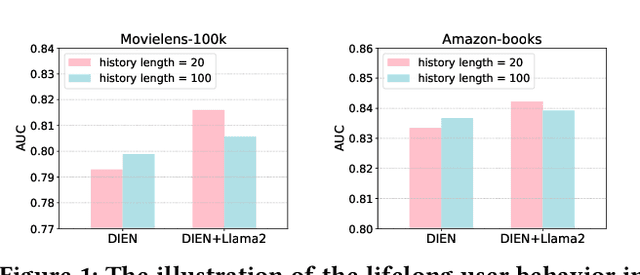
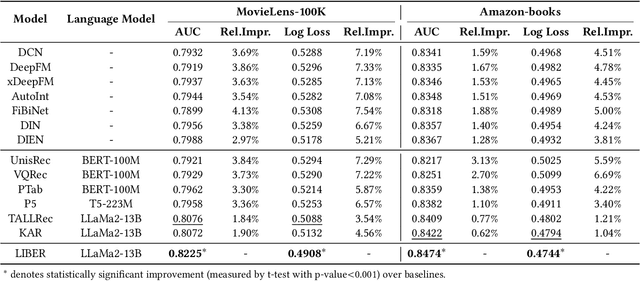
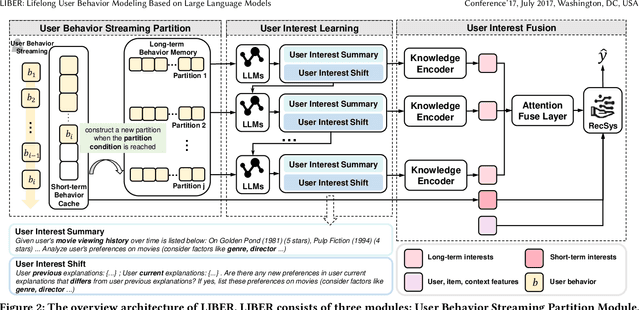

Abstract:CTR prediction plays a vital role in recommender systems. Recently, large language models (LLMs) have been applied in recommender systems due to their emergence abilities. While leveraging semantic information from LLMs has shown some improvements in the performance of recommender systems, two notable limitations persist in these studies. First, LLM-enhanced recommender systems encounter challenges in extracting valuable information from lifelong user behavior sequences within textual contexts for recommendation tasks. Second, the inherent variability in human behaviors leads to a constant stream of new behaviors and irregularly fluctuating user interests. This characteristic imposes two significant challenges on existing models. On the one hand, it presents difficulties for LLMs in effectively capturing the dynamic shifts in user interests within these sequences, and on the other hand, there exists the issue of substantial computational overhead if the LLMs necessitate recurrent calls upon each update to the user sequences. In this work, we propose Lifelong User Behavior Modeling (LIBER) based on large language models, which includes three modules: (1) User Behavior Streaming Partition (UBSP), (2) User Interest Learning (UIL), and (3) User Interest Fusion (UIF). Initially, UBSP is employed to condense lengthy user behavior sequences into shorter partitions in an incremental paradigm, facilitating more efficient processing. Subsequently, UIL leverages LLMs in a cascading way to infer insights from these partitions. Finally, UIF integrates the textual outputs generated by the aforementioned processes to construct a comprehensive representation, which can be incorporated by any recommendation model to enhance performance. LIBER has been deployed on Huawei's music recommendation service and achieved substantial improvements in users' play count and play time by 3.01% and 7.69%.
Efficient and Deployable Knowledge Infusion for Open-World Recommendations via Large Language Models
Aug 20, 2024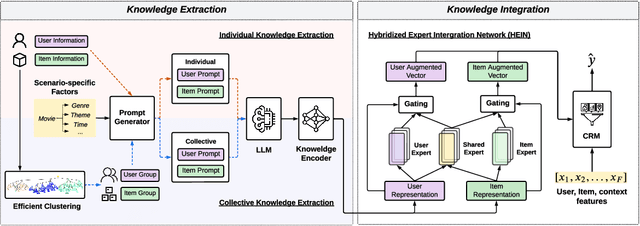

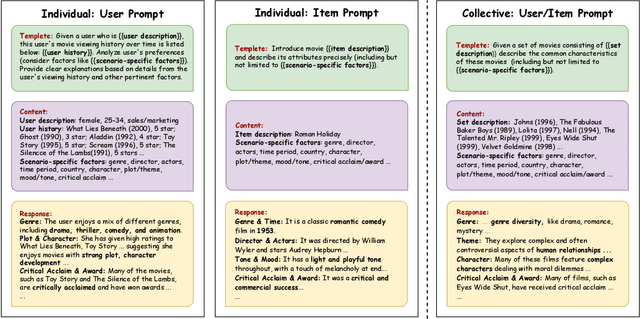

Abstract:Recommender systems (RSs) play a pervasive role in today's online services, yet their closed-loop nature constrains their access to open-world knowledge. Recently, large language models (LLMs) have shown promise in bridging this gap. However, previous attempts to directly implement LLMs as recommenders fall short in meeting the requirements of industrial RSs, particularly in terms of online inference latency and offline resource efficiency. Thus, we propose REKI to acquire two types of external knowledge about users and items from LLMs. Specifically, we introduce factorization prompting to elicit accurate knowledge reasoning on user preferences and items. We develop individual knowledge extraction and collective knowledge extraction tailored for different scales of scenarios, effectively reducing offline resource consumption. Subsequently, generated knowledge undergoes efficient transformation and condensation into augmented vectors through a hybridized expert-integrated network, ensuring compatibility. The obtained vectors can then be used to enhance any conventional recommendation model. We also ensure efficient inference by preprocessing and prestoring the knowledge from LLMs. Experiments demonstrate that REKI outperforms state-of-the-art baselines and is compatible with lots of recommendation algorithms and tasks. Now, REKI has been deployed to Huawei's news and music recommendation platforms and gained a 7% and 1.99% improvement during the online A/B test.
Emily: Developing An Emotion-affective Open-Domain Chatbot with Knowledge Graph-based Persona
Sep 18, 2021
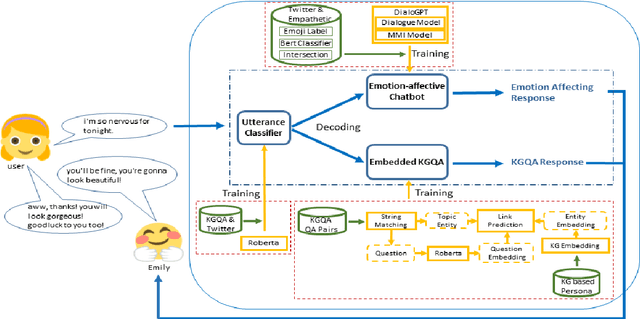
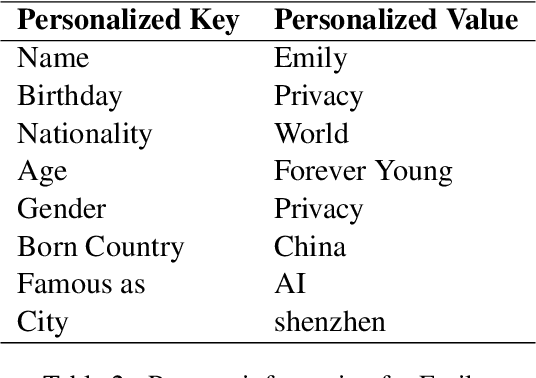
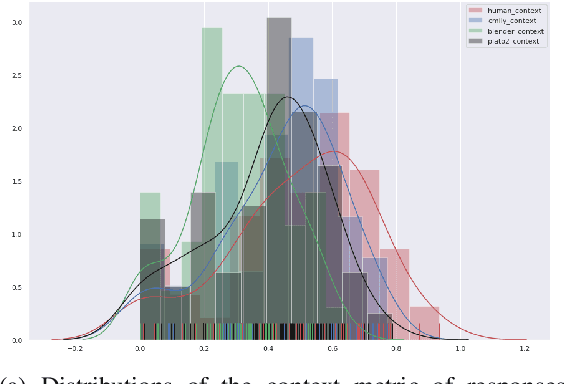
Abstract:In this paper, we describe approaches for developing Emily, an emotion-affective open-domain chatbot. Emily can perceive a user's negative emotion state and offer supports by positively converting the user's emotion states. This is done by finetuning a pretrained dialogue model upon data capturing dialogue contexts and desirable emotion states transition across turns. Emily can differentiate a general open-domain dialogue utterance with questions relating to personal information. By leveraging a question-answering approach based on knowledge graphs to handle personal information, Emily maintains personality consistency. We evaluate Emily against a few state-of-the-art open-domain chatbots and show the effects of the proposed approaches in emotion affecting and addressing personality inconsistency.
 Add to Chrome
Add to Chrome Add to Firefox
Add to Firefox Add to Edge
Add to Edge